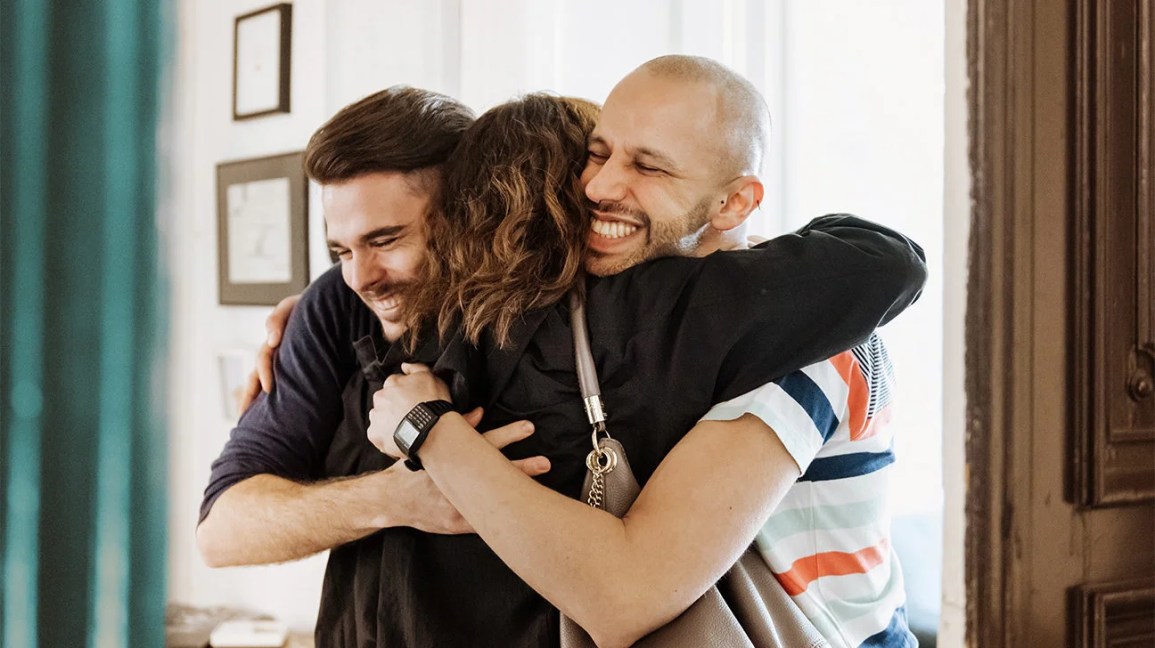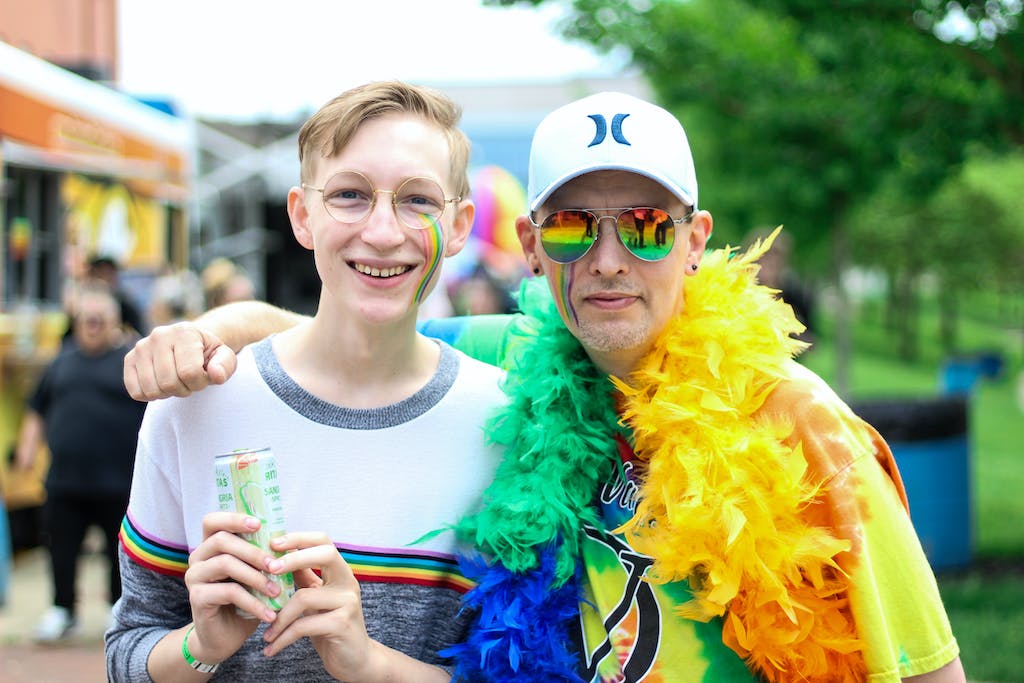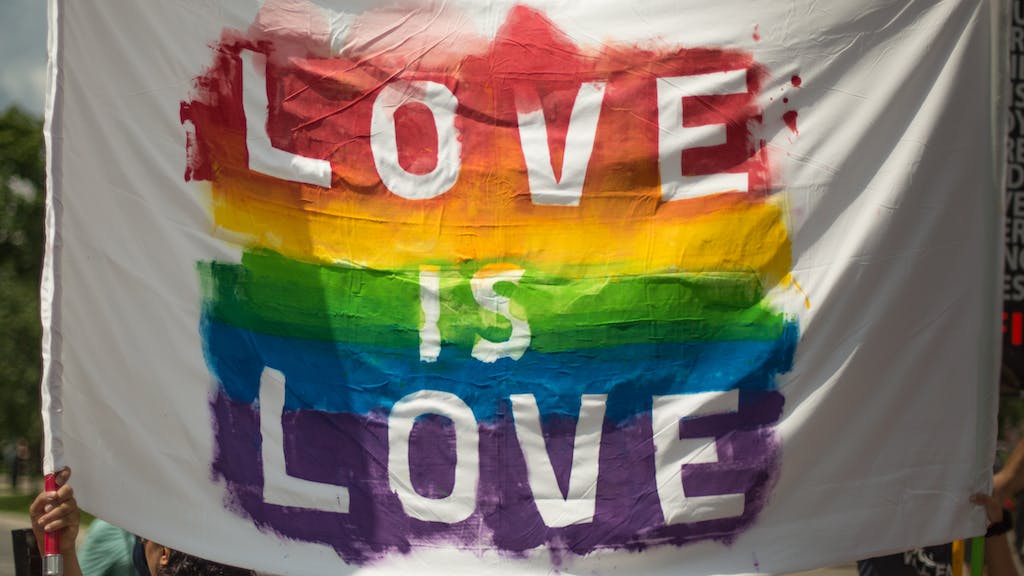How to Support and Accept Homosexual Friends and Family Members

Table of Contents
Understanding Sexual Orientation: An Overview

Sexual orientation refers to an individual’s enduring pattern of emotional, romantic, and/or sexual attractions to men, women, both genders, or neither gender. It is an integral aspect of one’s identity and can encompass a range of orientations, including heterosexual, homosexual, bisexual, and asexual orientations, to name a few. Understanding sexual orientation is crucial because it helps foster a more inclusive and accepting society.
Research suggests that sexual orientation is not a matter of choice or a result of any particular upbringing or environmental factors. Instead, it is believed to be a complex interplay of genetic, hormonal, and environmental influences. Studies have demonstrated that sexual orientation is likely determined by a combination of genetic and prenatal factors, as well as the social and cultural environment in which individuals grow and develop.
It is important to note that sexual orientation is distinct from gender identity. While sexual orientation pertains to who one is attracted to emotionally, romantically, or sexually, gender identity relates to one’s deeply held sense of being male, female, or something else entirely. Understanding the nuances of both sexual orientation and gender identity is essential for creating a more inclusive and supportive society that values and respects the diverse experiences and identities of individuals.
Challenging Stereotypes and Prejudices

Stereotypes and prejudices surrounding sexual orientation have persisted for far too long, perpetuating harmful beliefs and creating barriers to acceptance and inclusivity. It is imperative that we challenge these stereotypes and prejudices in order to create a more compassionate and understanding society.
One common stereotype that needs to be dismantled is the belief that sexual orientation is a choice. Countless studies have consistently shown that sexual orientation is not something that can be controlled or changed. Sexual orientation is a deeply ingrained aspect of a person’s identity, and attempting to change or deny it can lead to significant emotional distress and mental health issues. By recognizing and accepting that sexual orientation is not a choice, we can begin to break down the prejudice and discrimination that stems from this misconception.
Additionally, it is crucial to challenge the stereotype that sexual orientation is linked to certain behaviors or characteristics. Sexual orientation does not determine someone’s interests, hobbies, or personality traits. Just like individuals with different sexual orientations, LGBTQ+ individuals are diverse and varied in their identities and experiences. By acknowledging that sexual orientation does not dictate who a person is or how they should behave, we can reduce the stigma and judgments that LGBTQ+ individuals face on a daily basis.
Educating Yourself: Learning About LGBTQ+ History and Rights

Learning about LGBTQ+ history and rights is crucial in fostering a more inclusive and accepting society. By understanding the struggles, achievements, and contributions of the LGBTQ+ community, we can challenge stereotypes, debunk prejudices, and create a safer and more supportive environment for all.
LGBTQ+ history is rich and diverse, spanning across different cultures and time periods. It is important to recognize that the concept of sexual orientation and gender identity is not a recent phenomenon but has existed throughout history. From the ancient civilizations of Greece and Rome, where same-sex relationships were not uncommon, to the pioneering activists of the Stonewall riots in 1969, who ignited the modern LGBTQ+ rights movement, there is a wealth of stories and experiences that deserve our attention and respect.
Understanding the history of LGBTQ+ rights is equally important. In many countries, same-sex relationships were criminalized until relatively recently. It was not until 1973 that the American Psychiatric Association removed homosexuality from its list of mental disorders. The fight for equality and acceptance has gained momentum over the years, resulting in significant advancements such as the legalization of same-sex marriage in many countries. However, discrimination, violence, and systemic inequalities still persist, highlighting the ongoing need for education, advocacy, and support.
By familiarizing ourselves with LGBTQ+ history and rights, we can actively challenge heteronormative assumptions, combat homophobia and transphobia, and work towards creating a society that embraces diversity and promotes equality for all. So, let us embark on this journey of education, empathy, and empowerment to create a better future for ourselves and future generations.
Active Listening: Creating a Safe Space for LGBTQ+ Loved Ones
Creating a safe space for our loved ones is crucial, especially when it comes to LGBTQ+ individuals who may face unique challenges and discrimination. Active listening is an essential skill that can help us understand and support them better. By actively listening, we show empathy, respect, and validation for their experiences and emotions. It allows us to create an environment where they feel safe to open up and share their thoughts and feelings without judgment.
In active listening, it is important to give our full attention to the person speaking, maintaining eye contact, and showing genuine interest. We should also be aware of our non-verbal cues, such as nodding or facial expressions, to convey our understanding and engagement. It is crucial to refrain from interrupting or imposing our own opinions. Instead, we should focus on their words and emotions, seeking to understand their perspective fully. By doing so, we create a safe space where they can express themselves freely and feel supported in their journey of self-discovery and acceptance.
This table summarizes key aspects of active listening and creating a safe space for LGBTQ+ loved ones:
| Aspect | Description |
|---|---|
| Active Listening Skills | Active listening involves fully engaging with and understanding what LGBTQ+ loved ones are expressing, both verbally and nonverbally. Key skills include giving full attention, maintaining eye contact, nodding or using affirming gestures, summarizing or paraphrasing their words, asking clarifying questions, and showing empathy and validation. Active listening demonstrates genuine interest, respect, and acceptance, fostering trust, openness, and connection within the relationship. |
| Openness and Acceptance | Creating a safe space for LGBTQ+ loved ones requires an attitude of openness, acceptance, and nonjudgment. Approach conversations with an open mind and a willingness to learn, unlearn, and challenge preconceived notions or biases. Validate their experiences, feelings, and identity without judgment or criticism, affirming their right to self-expression and self-determination. Cultivate an environment of unconditional love, respect, and affirmation, where LGBTQ+ loved ones feel valued, heard, and supported for who they are. |
| Empathy and Understanding | Empathy involves understanding and sharing the feelings and experiences of LGBTQ+ loved ones from their perspective. Practice empathy by putting yourself in their shoes, imagining how they might feel or perceive a situation, and responding with compassion and understanding. Acknowledge their emotions, validate their experiences, and express empathy through supportive statements and gestures. Show genuine concern and interest in their well-being, demonstrating your commitment to their happiness and fulfillment. |
| Respect for Identity and Autonomy | Respect LGBTQ+ loved ones’ identity, autonomy, and self-expression, honoring their right to define and live authentically. Use affirming language and pronouns that align with their gender identity and expression, respecting their chosen name and gender identity without question or hesitation. Avoid making assumptions or imposing labels on their identity, allowing them to define themselves on their own terms. Respect their boundaries, privacy, and decisions, empowering them to navigate their journey with agency and self-determination. |
| Support and Validation | Provide unconditional support and validation for LGBTQ+ loved ones, affirming their identity, experiences, and feelings. Offer encouragement, reassurance, and affirmation of their strengths and resilience, acknowledging their courage and authenticity in living openly as LGBTQ+ individuals. Validate their emotions, challenges, and victories, expressing pride and admiration for their journey and accomplishments. Be a source of encouragement, validation, and empowerment, fostering their self-confidence and self-worth in navigating life’s challenges and triumphs. |
| Educate Yourself and Advocate | Educate yourself about LGBTQ+ identities, experiences, and issues, and advocate for LGBTQ+ rights and inclusion within your family, community, and society. Take initiative to learn about diverse sexual orientations, gender identities, and LGBTQ+ experiences, seeking out resources, literature, and perspectives that broaden your understanding and empathy. Speak out against discrimination, injustice, and stigma faced by LGBTQ+ individuals, and actively support LGBTQ+ rights, visibility, and representation in your personal and professional spheres. Advocate for inclusive policies, practices, and resources that promote equality, dignity, and respect for all individuals, regardless of sexual orientation or gender identity. |
Empathy and Compassion: Nurturing Emotional Well-being
Empathy and compassion are crucial elements in nurturing emotional well-being, especially within the context of the LGBTQ+ community. The journey of self-discovery and acceptance can be both empowering and challenging, and it is essential to create a safe space where individuals can express their thoughts and emotions without fear of judgment or rejection.
By actively engaging in empathetic and compassionate conversations, we can foster a sense of belonging and understanding. Research suggests that individuals who feel supported and validated in their emotions experience lower levels of anxiety, depression, and loneliness. As an ally, it is important to listen attentively, validate experiences, and acknowledge emotions without offering unsolicited advice or judgments. This allows individuals to process their feelings and helps in building trust and rapport.
Remember, empathy and compassion are not limited to words alone. Simple acts of kindness, such as offering a shoulder to lean on or lending a helping hand, can make a significant difference in someone’s emotional well-being. So, let us extend our heart and compassion and create a world where everyone feels valued and supported on their journey of self-discovery and acceptance.
Open Communication: Encouraging Honest Conversations
Open communication is essential in fostering understanding and acceptance of diverse sexual orientations. Encouraging honest conversations allows individuals to express their thoughts, concerns, and experiences without fear of judgment or discrimination. By creating a safe and inclusive space for dialogue, we can break down barriers and challenge harmful stereotypes.
When discussing sensitive topics such as sexual orientation, it is important to approach conversations with empathy and respect. People may hold different beliefs or perspectives, and it is crucial to listen actively and be open to alternative viewpoints. By practicing active listening, we not only validate the experiences of others but also gain a deeper understanding of the challenges faced by the LGBTQ+ community. This understanding can then guide us in our efforts to support and advocate for equal rights and acceptance.
Advocating for LGBTQ+ Rights: Joining the Movement
Advocating for LGBTQ+ rights is more important than ever before. By joining the movement, you can actively contribute to creating a more inclusive and accepting society for all individuals, regardless of their sexual orientation. This movement is not only about fighting for equal rights, but also about challenging stereotypes and prejudices that have long plagued our communities.
One way to join the movement is by educating yourself about LGBTQ+ history and rights. By understanding the struggles and victories of the past, you can better advocate for the present and future. Take the time to learn about key milestones in LGBTQ+ rights, such as the Stonewall Riots, the legalization of same-sex marriage, and the ongoing fight for transgender rights. By equipping yourself with this knowledge, you can engage in conversations and debates with confidence, backed by facts and evidence. Remember, knowledge is power, and it is through education that we can dismantle the harmful biases that have held back progress.
Celebrating Diversity: Participating in LGBTQ+ Events and Pride Parades
Participating in LGBTQ+ events and Pride parades is a powerful way to celebrate diversity and show support for the LGBTQ+ community. These events serve as a platform for individuals of all sexual orientations and gender identities to come together, showcase their pride, and advocate for equality. By attending these events, you become a part of a global movement that is working towards creating a more inclusive and accepting society.
One of the key benefits of participating in LGBTQ+ events and Pride parades is the opportunity to connect with others who share similar values and experiences. These events foster a sense of belonging and offer a safe space for individuals to express themselves authentically. Engaging in conversations, listening to personal stories, and learning about different perspectives can broaden your understanding of the LGBTQ+ community and challenge any preconceived notions or prejudices you may have.
Furthermore, attending these events allows you to stand in solidarity with the LGBTQ+ community and contribute to the fight against discrimination and inequality. By visibly supporting this cause, you send a message of acceptance and validate the experiences and identities of LGBTQ+ individuals. Additionally, your presence can help counteract the stigma and barriers they may face in their daily lives. Participating in LGBTQ+ events and Pride parades is an active way to be an ally and contribute to the progress towards a more equitable society.
Supporting LGBTQ+ Youth: Creating Inclusive Environments
Supporting LGBTQ+ youth in creating inclusive environments is crucial for their emotional well-being and overall development. Research has consistently shown that LGBTQ+ youth face higher rates of mental health issues, such as depression and anxiety, as well as increased risk of self-harm and suicide. By creating inclusive environments, we can provide them with the support and acceptance they need to thrive.
One way to create an inclusive environment is by educating ourselves and others on LGBTQ+ identities and experiences. This includes learning about different sexual orientations, gender identities, and the challenges faced by LGBTQ+ youth. By staying informed, we can challenge stereotypes and prejudices, and better understand the needs and concerns of LGBTQ+ youth. Education can also help us recognize the importance of using correct language and pronouns, as well as understanding the unique experiences and struggles faced by each individual.
Addressing Homophobia and Discrimination: Standing Up Against Hate
Homophobia and discrimination against the LGBTQ+ community continue to be prevalent issues in today’s society, and it is crucial that we take a stand against hate and work towards a more inclusive and accepting world. Studies have repeatedly shown that the harmful effects of homophobia and discrimination can lead to higher rates of mental health issues, substance abuse, and even suicide among LGBTQ+ individuals. It is imperative that we address these issues head-on and strive for equality and respect for all.
One way to address homophobia and discrimination is by educating ourselves and others about the LGBTQ+ community and their experiences. By learning about different sexual orientations, gender identities, and the challenges faced by LGBTQ+ individuals, we can gain a deeper understanding of their lives and the impact of our actions and words. Education plays a crucial role in breaking down stereotypes and dismantling prejudice, allowing us to challenge our own biases and assumptions. Through knowledge and empathy, we can foster a more inclusive and accepting society for everyone.
Providing Resources and Support: Sharing LGBTQ+ Organizations and Helplines
When it comes to providing support and resources for LGBTQ+ individuals, there are numerous organizations and helplines dedicated to ensuring their well-being and addressing their unique needs. These organizations play a crucial role in assisting individuals in times of distress, providing guidance, and connecting them with the necessary resources. They serve as a lifeline for those who may feel isolated or misunderstood.
One such organization is the Trevor Project, a leading nonprofit organization focused on providing crisis intervention and suicide prevention services for LGBTQ+ youth. According to their website, “LGBTQ+ young people face unique challenges and are at higher risk for suicide due to factors such as stigma, discrimination, and lack of acceptance.” The Trevor Project offers a variety of services, including a 24/7 helpline, online chat support, and a text messaging service, ensuring that LGBTQ+ youth have access to immediate help and support when they need it most.
Additionally, organizations like GLAAD, the Human Rights Campaign Foundation, and PFLAG provide valuable resources, education, and advocacy for LGBTQ+ individuals and their families. These organizations strive to promote understanding, acceptance, and equality by challenging stereotypes and prejudices, reshaping cultural narratives, and advocating for positive change. By sharing information about these organizations and helplines, we can help create a supportive network and a safer world for LGBTQ+ individuals to thrive.
Respecting Boundaries: Consent and Privacy Matters
Respecting boundaries when it comes to consent and privacy is a fundamental aspect of ensuring the well-being and dignity of all individuals. Consent means obtaining explicit permission before engaging in any sexual activity, and it should be given freely, voluntarily, and enthusiastically by all parties involved. It is crucial to understand that consent is an ongoing process that can be withdrawn at any time, and it should never be assumed or coerced.
Respecting privacy is equally important, as individuals have the right to control who has access to their personal information, including their sexual orientation or gender identity. This means that disclosing someone’s LGBTQ+ status without their consent can be a breach of trust and potentially harmful to them. It is essential to create a safe and supportive environment where individuals feel comfortable expressing their boundaries and concerns without fear of judgment or discrimination. By actively listening, practicing empathy, and promoting open communication, we can foster an inclusive society that values consent and privacy for all.
Being an Ally: Using Correct Language and Pronouns
Using correct language and pronouns is an essential part of being an ally to the LGBTQ+ community. By respecting and affirming individuals’ gender identities, we create a more inclusive and safe environment for everyone. It is important to understand that gender identity is deeply personal and goes beyond the binary concepts of male and female. People may identify as non-binary, genderqueer, or genderfluid, among other identities.
When referring to someone, it is crucial to use their correct pronouns. This includes using he/him, she/her, they/them, or other pronouns preferred by the individual. Misgendering, intentionally or not, can be harmful and invalidate someone’s identity. It is always best to ask someone for their pronouns when introducing yourself or in situations where you are unsure. Additionally, avoiding assumptions based on appearances or stereotypes is crucial. Understanding and using correct language and pronouns demonstrates respect, acceptance, and a commitment to creating a more inclusive and supportive society.
Building Supportive Networks: Connecting with LGBTQ+ Communities
Building supportive networks is an essential aspect of connecting with LGBTQ+ communities. By building these networks, individuals can gain a deeper understanding of the experiences and challenges faced by the LGBTQ+ community, while also fostering a sense of belonging and acceptance.
One way to connect with LGBTQ+ communities is by attending local events and gatherings. Pride parades, community forums, and support groups are great platforms for meeting like-minded individuals and establishing connections. These events provide an opportunity to engage in open conversations, learn from diverse perspectives, and share personal experiences. By actively participating in these gatherings, individuals can not only expand their knowledge but also show their support and solidarity with the LGBTQ+ community.
Additionally, online platforms such as social media groups and forums can serve as valuable resources for connecting with LGBTQ+ communities. These platforms create a safe and inclusive space for individuals to ask questions, seek advice, and share information. By actively engaging in these online communities, individuals can find a sense of belonging, gain insights into different experiences, and contribute to ongoing conversations about LGBTQ+ rights and issues.
In conclusion, building supportive networks is crucial in connecting with LGBTQ+ communities. Whether through attending local events or engaging in online platforms, individuals can foster understanding, acceptance, and solidarity. By actively participating in these networks, people can play a vital role in advancing LGBTQ+ rights and creating a more inclusive and equal society.
Continuing the Journey: Lifelong Learning and Growth
Lifelong learning is a crucial aspect of personal growth and development, particularly when it comes to understanding and supporting the LGBTQ+ community. By committing to this ongoing journey, we can continuously expand our knowledge, challenge our beliefs, and foster inclusivity in our own lives and communities. Each step forward in our education brings us closer to creating a more accepting and supportive world for everyone.
As we continue on this path of lifelong learning, it is essential to stay updated with the latest research, resources, and insights on LGBTQ+ issues. By actively seeking out reputable sources, attending workshops or webinars, and engaging in meaningful discussions, we can deepen our understanding of sexual orientation and gender identity. This knowledge equips us with the tools to challenge misconceptions and stereotypes, and to actively combat discrimination and prejudice. It is through this commitment to ongoing education that we can truly make a difference.
What are some common misconceptions about sexual orientation?
Some common misconceptions about sexual orientation include the belief that it is a choice, that it can be changed or “cured,” and that it is a mental illness. It is important to understand that sexual orientation is a natural and innate aspect of a person’s identity.
How can I support LGBTQ+ youth in creating inclusive environments?
Supporting LGBTQ+ youth in creating inclusive environments can be done by promoting acceptance and understanding, providing resources and support, advocating for inclusive policies in schools and communities, and fostering a safe and supportive space for them to express themselves.
What can I do to address homophobia and discrimination in my community?
To address homophobia and discrimination in your community, you can actively challenge stereotypes and prejudices, engage in open and honest conversations, educate others about LGBTQ+ history and rights, and stand up against hate by promoting equality and respect for all individuals.
How can I be an effective ally to the LGBTQ+ community?
Being an effective ally to the LGBTQ+ community involves using correct language and pronouns, respecting boundaries, actively listening to their experiences, educating yourself about LGBTQ+ issues, and taking action to support and advocate for their rights.
Where can I find LGBTQ+ organizations and helplines for support and resources?
There are numerous LGBTQ+ organizations and helplines that provide support and resources. Some well-known organizations include The Trevor Project, GLAAD, and Human Rights Campaign. Additionally, local LGBTQ+ community centers and online resources can provide valuable support and information.






